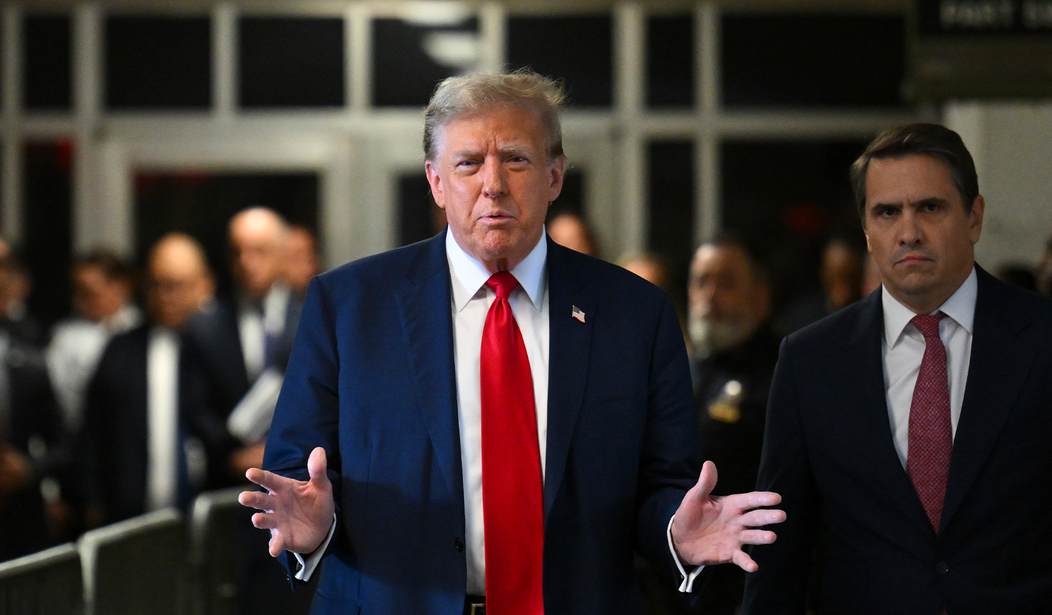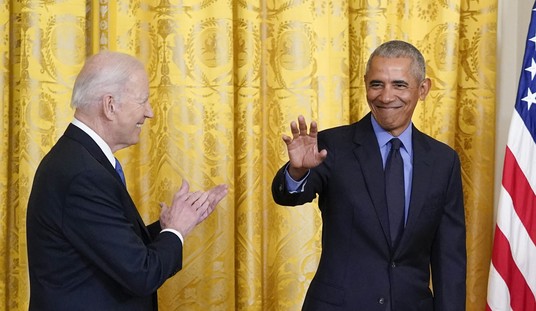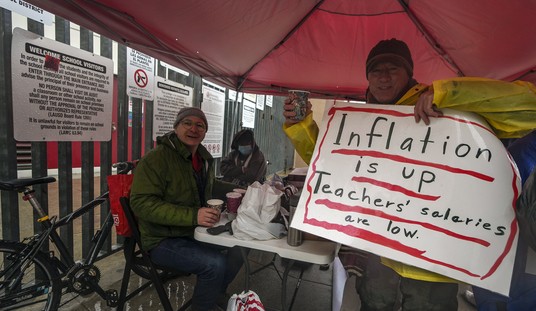So it begins.
The "it" is the unprecedented "hush money" trial against Donald Trump, making him the first former president to stand trial on criminal charges in the history of the United States.
As my colleague Susie Moore reported on Sunday, "Assuming the trial proceeds... Trump will need to be present at trial every day, given that this is a criminal matter."
Assuming the trial proceeds (I say "assuming" because all sorts of interesting twists and turns can crop up in the days and hours before a trial actually gets underway — and even during the trial — that could result in a delay), estimates are that it will last six to eight weeks. Jury selection alone could take a week or longer, particularly given Trump's high profile and the publicity surrounding the case. Finding 12 jurors (and six alternates) who don't already have strong opinions about the matter (and/or the players) will be no small feat.
Legal scholar and political commentator Jonathan Turley called the criminal against Trump "legally absurd."
Jonathan Turley on Trump hush money trial:
— Citizen Free Press (@CitizenFreePres) April 14, 2024
"Everything about this case in my view is legally absurd." pic.twitter.com/qSinoOZIUx
Now, even CNN analyst Elie Honig incredulously agrees with all of the above.
In a Cafe Brief newsletter that was reprinted in New York magazine on Friday, Honig presented both the pro and anti-Trump ways of looking at the Alvin Bragg case against Trump. The former federal and state prosecutor opined (emphasis, mine):
Donald Trump is about to face trial for conduct that happened eight years ago; if you have kids in college now, they may have been in elementary school when it all went down.
The crime is a paperwork offense relating to how Trump and his businesses logged a series of perfectly legal (if unseemly) hush-money payments in their own internal records.
The prosecution’s star witness is a convicted perjurer and fraudster who openly spews vitriol at the defendant, often in grotesque terms, essentially for a living.
The famously aggressive feds at the Southern District of New York passed on the case years ago, and current Manhattan district attorney Alvin Bragg’s predecessor could have indicted [Trump] before he left office but did not.
The charges are either misdemeanors or the lowest-level felonies (depending on how the jury decides the case), and the vast majority of defendants convicted of similar offenses are sentenced to probation and fines, not prison.
From a CNN legal analyst, no less.
'Paying Hush Money Is Not a Crime'
Honig continued:
..Paying hush money is not a crime. In fact, a hush-money agreement, though seedy, is legally no different from any other contract between private parties. So Trump knowing about the Daniels payoff — and he clearly did — is merely a starting point here and insufficient to prove anything criminal.
The charged New York State crime here is falsification of business records. The DA alleges Trump had the hush-money payments fraudulently recorded in his internal books as “legal expenses” (rather than, I don’t know, “hush money to porn star”).
If proved, that’s merely a misdemeanor, a low-level crime virtually certain to result in a non-prison sentence. For comparison, under the New York code, falsification of business records has the same technical designation as shoplifting less than $1,000 of goods.
Honig went on to write that if Trump was involved in logging those payments to Daniels into the internal records of his business, it would be a crime — but not to the magnitude of Bragg's charges against the former president.
The Bottom Line
So here we — and Donald Trump — are, regardless of expert legal analysts.
The notion of whether 12 truly objective jurors can be found in this case reminds me of a trial in California that took place in October 1995. The accused was acquitted. He died last last Wednesday. His name was O.J. Simpson.
RELATED:














Join the conversation as a VIP Member